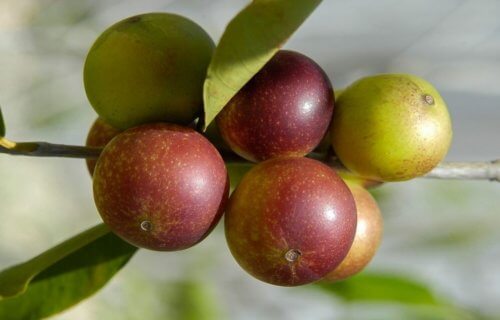
MONTRÉAL, Quebec — A fruit found in the Amazon rainforest may help treat various cancers, according to researchers from the Université de Montréal. The berry, called camu-camu, contains a polyphenol known as castalagin. Scientists say this substance is protective against both obesity and diabetes. Now, the new study finds that castalagin successfully boosts the efficiency of immunotherapy sessions in mice by actually changing their microbiomes.
“With this research, conducted with our colleagues from Université Laval and McGill University, we have proved that castalagin, a polyphenol acting as a prebiotic, modifies the gut microbiome and improves immunotherapy response, even for cancers resistant to this type of treatment,” explains study co-author Dr. Bertrand Routy, a professor in Université de Montréal’s Department of Medicine, in a media release.
“Our results pave the way for clinical trials that will use castalagin as a complement to medications called immune checkpoint inhibitors in cancer patients,” adds first study author Meriem Messaoudene, a postdoctoral student in Dr. Routy’s lab.
The emergence of immune checkpoint inhibitors (ICI) in recent years has been a major boon for cancer treatments. This variety of immunotherapy kickstarts the patient’s immune system, putting it in a better position to kill cancer cells. These treatments have provided countless patients with renewed hope and optimism that their immune systems will ultimately triumph over the cancer, particularly those fighting lung cancer and melanoma.
ICI treatments are not a universal cure-all
Only a small percentage of cancer patients given ICI treatments go on to have long-lasting responses that result in a full recovery. The research team conducted this new study in hopes of formulating more effective immune-boosting cancer treatments. In short, their main goal is to take an unhealthy microbiome and foster a full recovery, resulting in a more robust immune system well-equipped to fight cancer.
One strategy Dr. Routy is working on revolves around prebiotics, or chemical compounds capable of improving the gut microbiome’s composition.
“To evaluate the beneficial effects of castalagin, we orally administered the prebiotic to mice that had received a fecal transplant from patients resistant to ICI,” Dr. Routy concludes. “We found that castalagin binds to a beneficial intestinal bacteria, Ruminococcus bromii, and promotes an anti-cancer response.”
These discoveries are set for further testing in human patients taking part in the first ever clinical trial involving both the camu-camu berry and ICIs.
The study is published in the journal Cancer Discovery.
